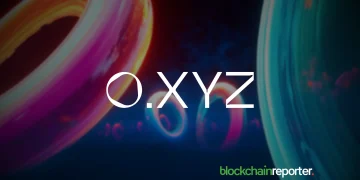Introduction: A New Era of Transparency in Online Gambling
The rapid growth of the online casino industry has brought with it significant challenges around trust and fairness. Players often question the integrity of digital games, wondering whether outcomes are truly random and unbiased. Blockchain technology has emerged as a game-changer, offering unprecedented levels of transparency and security. In this article, we explore how blockchain ensures fair play in online casinos, setting a new standard for the gambling industry.
What is Blockchain Technology?
At its core, blockchain is a decentralized, distributed ledger that records transactions across multiple computers in a way that ensures data integrity and security. Each transaction is verified by network nodes through cryptography and recorded in a public ledger. This structure makes it virtually impossible to alter or hack, offering unparalleled transparency.
Key Benefits of Blockchain in Online Casinos
1. Provably Fair Gaming Systems
One of the most groundbreaking applications of blockchain in real pokies online is the concept of provably fair gaming. This system allows players to verify the fairness of each game outcome. Here’s how it works:
- Hashing Algorithms: Before the game begins, the system generates a hashed (encrypted) version of the outcome. Players can later use this hash to verify that the result was predetermined and not altered.
- Random Number Generation (RNG): Blockchain-based RNG ensures that outcomes are genuinely random. Because the process is recorded on the blockchain, anyone can audit the sequence of events.
2. Enhanced Transparency and Trust
Transparency is a cornerstone of blockchain technology. Every transaction and game result is recorded on a public ledger, accessible to anyone. This level of openness builds trust between casinos and players, addressing long-standing concerns about rigged systems and unfair practices.
- Immutable Records: Once data is recorded on the blockchain, it cannot be modified. This immutability ensures that game results and financial transactions remain secure and verifiable.
- Auditability: Regulators and third parties can audit the blockchain to ensure compliance with fairness standards and legal requirements.
3. Secure and Fast Transactions
Blockchain facilitates secure, peer-to-peer transactions, eliminating the need for intermediaries like banks. This reduces transaction costs and speeds up both deposits and withdrawals.
- Cryptocurrencies: Many blockchain casinos accept cryptocurrencies such as Bitcoin, Ethereum, and Litecoin, providing an additional layer of security and anonymity.
- Smart Contracts: These self-executing contracts automate payouts and other processes, ensuring that winnings are distributed fairly and promptly.
How Blockchain Addresses Common Casino Challenges
Eliminating Fraud and Manipulation
Traditional online casinos are vulnerable to fraudulent activities, including data manipulation and unfair practices. Blockchain’s decentralized nature makes it nearly impossible for any single entity to manipulate game results or transaction records.
- Decentralized Control: With no central authority, the power is distributed among all participants, reducing the risk of corruption.
- Verification Mechanisms: Players can independently verify game outcomes, enhancing trust and reducing disputes.
Ensuring Regulatory Compliance
Online gambling is subject to strict regulations, varying by jurisdiction. Blockchain technology simplifies compliance by providing a transparent and immutable record of all activities.
- Traceability: Every transaction is recorded, providing clear audit trails for regulators.
- Compliance Automation: Smart contracts can be programmed to enforce regulatory requirements, ensuring that casinos operate within legal boundaries.
Future Trends: The Evolving Landscape of Blockchain Casinos
Integration with Artificial Intelligence (AI)
The combination of blockchain and AI promises to revolutionize online casinos further. AI can analyze player behavior to detect patterns of fraud, while blockchain ensures that the data used for these analyses is accurate and tamper-proof.
Decentralized Autonomous Casinos (DACs)
DACs are fully autonomous, blockchain-based platforms that operate without human intervention. These casinos use smart contracts to manage all aspects of operations, from game outcomes to payouts. This reduces operational costs and eliminates the possibility of human error or bias.
Tokenized Gaming Economies
Many blockchain casinos are exploring the use of native tokens or cryptocurrencies. These tokens can be used for wagering, accessing exclusive games, and earning rewards. Players can also trade or sell tokens, creating a dynamic, player-driven economy.
Conclusion: A Transparent Future for Online Gambling
Blockchain technology is transforming the online casino industry by ensuring fairness, transparency, and security. As more operators adopt blockchain-based systems, players can look forward to a future where trust is the norm, not the exception. The integration of provably fair algorithms, cryptocurrencies, and smart contracts is setting a new standard for online gambling, promising a safer and more transparent experience for all.























